The Power of Travel: Lessons from a World of Wonder in 2024
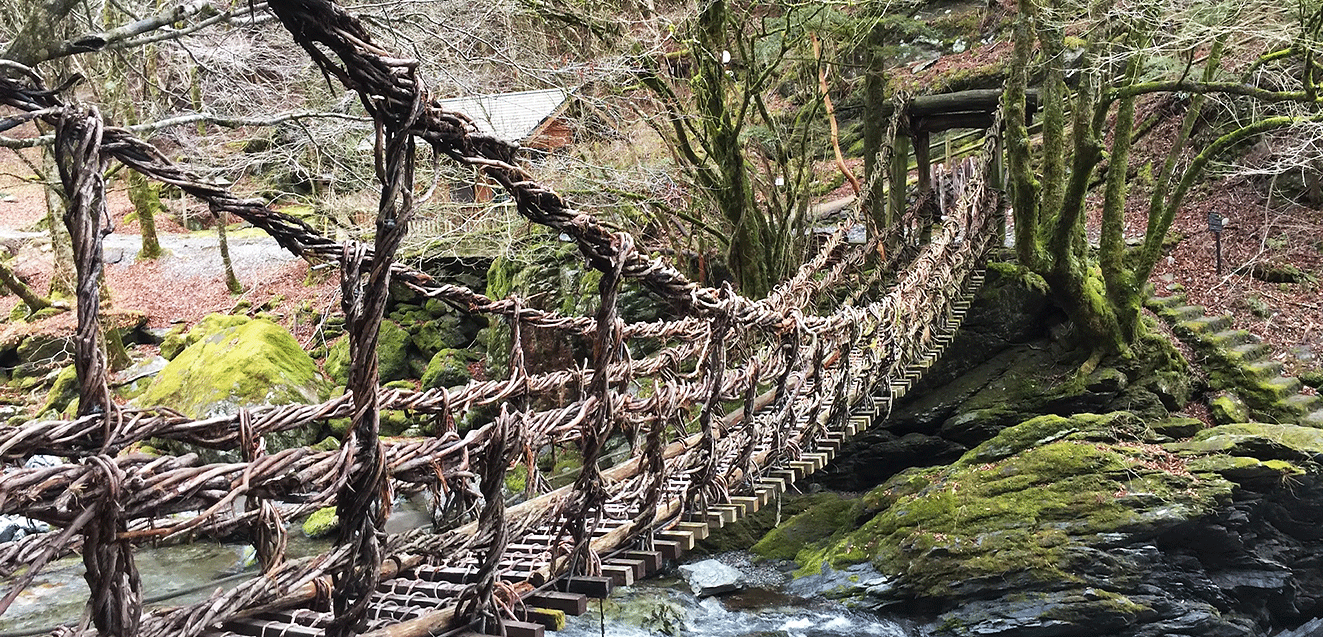
As I do at the end of every year, this week I’ve been paging through my 2024 scrapbook of memories and asking myself, “What were the most important lessons your travels taught you this year?”
The first thing I’ve realized is how exhilarating this year was for me. I traveled more than I have in any other year of my life – both in terms of time spent on the road and in terms of miles covered.
In winter I traveled to Mexico and explored the Maya marvels of Chiapas. In spring I reveled in the blossoms – floral and human – of Kyoto and Shikoku, Japan. In summer I wandered and wondered through Europe, from Paris to Greece, then Switzerland and Italy, finally ending back in France on the Côte d’Azur.
In September I had a grand adventure circling the globe, journeying from Seattle to Japan, Vietnam, India, Seychelles, Kenya, Egypt, and Spain, before returning to the US. And in October and November I ventured back to Japan to explore the off-the-beaten-path treasures of the Japan Sea coast, from the pottery of Hagi to the hot spring onsen of Kinosaki to the funaya fishermen’s houseboats of Ine.
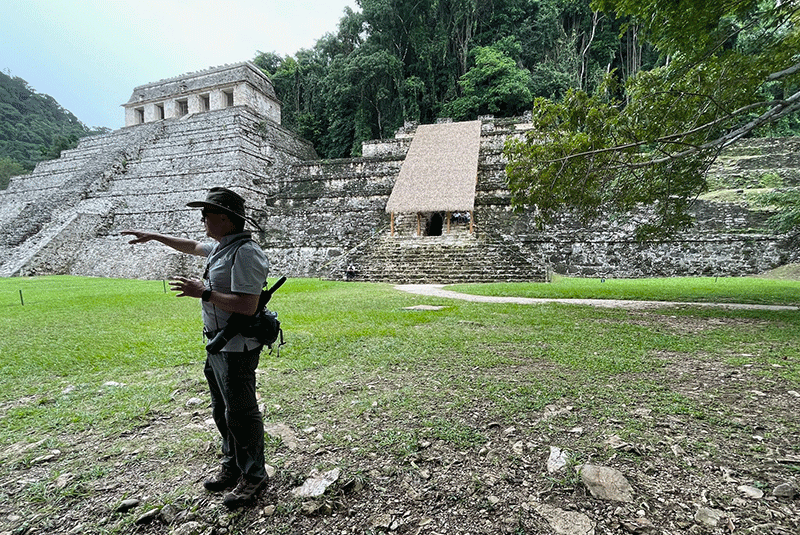
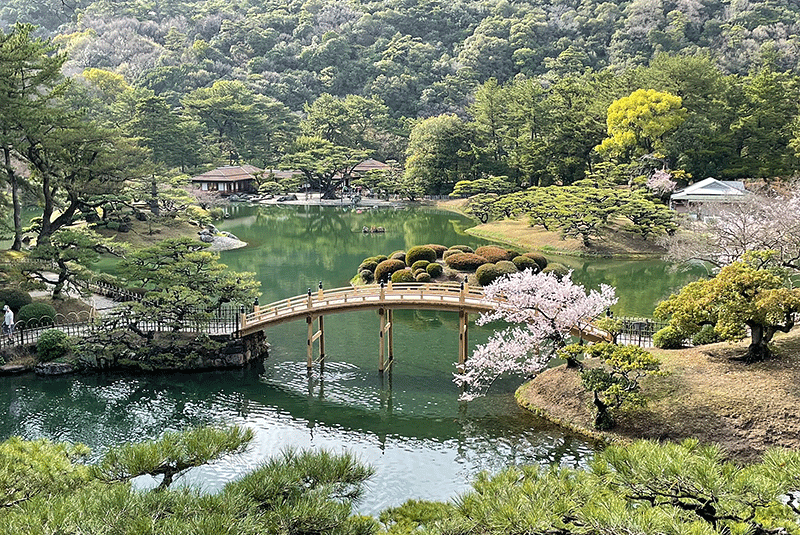
What a year! And what life-deepening lessons it bestowed about the power of travel!
The first lesson was how travel can be a powerful force for revitalization.
This lesson was brought home to me in tiny Omori, a three-street hamlet located on the Japan Sea coast about five and a half hours by car southwest of Kyoto. Omori was the base of the world-renowned Iwami Ginzan silver mine from the 16th to 18th centuries, and at its height, was a prosperous, thriving city of some 200,000 residents. But as silver production declined through the 19th century, the number of inhabitants declined too. After the mine was closed in 1923, the population decreased to 500 people and many buildings were abandoned.
Omori might have eventually disappeared but for Katsuhiro and Tomi Matsuba. Katsuhiro was born in Omori and returned to his birthplace in the 1980s with his wife, Tomi. A smiling, wizardly force of nature, Tomi-san is the heroine of Omori’s revitalization story. Fervently guided by a philosophy of fukko zōshin – restoration and innovation – Tomi-san has thoughtfully and artfully restored multiple abandoned buildings in the village, including an 18th-century samurai home that she has converted into a guesthouse. GeoEx travelers stay here, admire the exquisite renovations, and enjoy homegrown, family-style feasts around a wooden table in the atmospheric kitchen-and-dining room.
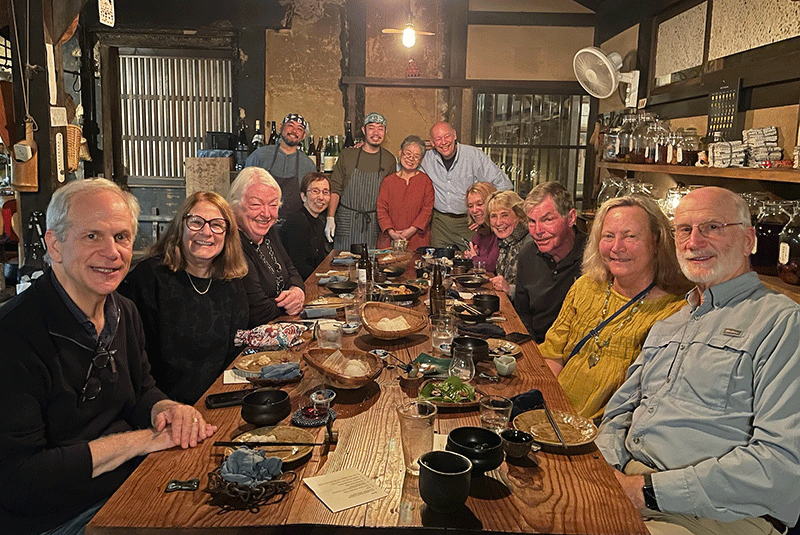
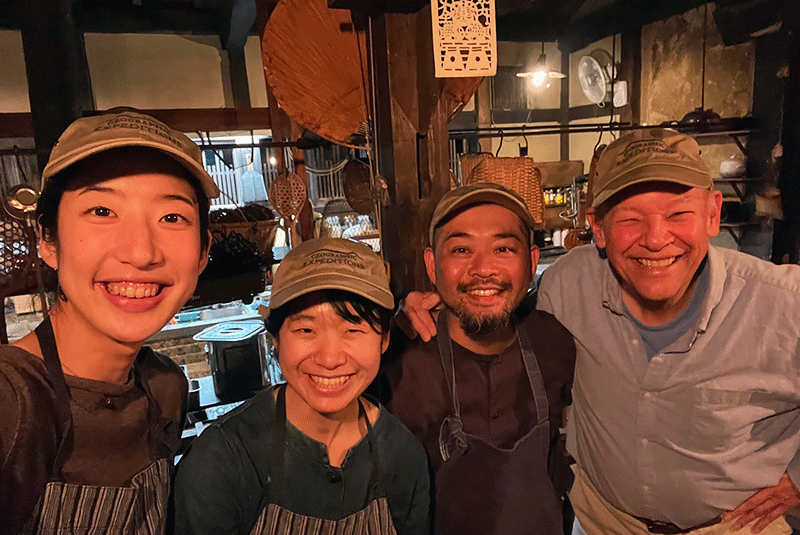
In addition to renovating buildings, Tomi-san has also founded a company that creates stylish clothing using artisanal techniques and natural materials, and collaborates with local craftsmen and artisans to sell handcrafted home goods, including pottery, lacquerware, woodware, ceramics, and textiles. Tomi-san’s efforts have inspired dozens of young Japanese to move to Omori from throughout Japan to work for her company and to enjoy the peaceful pace, natural riches, and intimacy of life there. Those efforts have attracted increasing numbers of travelers to the region as well, revitalizing the area socially and economically.
In the past decade, the numbers of students in the village’s nursery school and elementary school have increased dramatically, and many new shops and businesses have opened. In the four years GeoEx travelers have been visiting, I have been thrilled to see a new bakery, clothing store, traditional sweet shop, and handmade jewelry store open, and we have all been deeply touched by the pure energy, idealism, kindness, and optimism of the staffers at Takyo Abeke.
Tomi-san has become a cherished friend and inspiration, and we feel privileged to be able to contribute to her dream of bringing Omori back to life in a way that preserves the traditions and harmony of the town while incorporating modern conveniences. On our visit this year, it became crystal clear to me that Tomi-san and her beloved Omori have become powerful, profoundly moving symbols of the regenerative potential of travel.
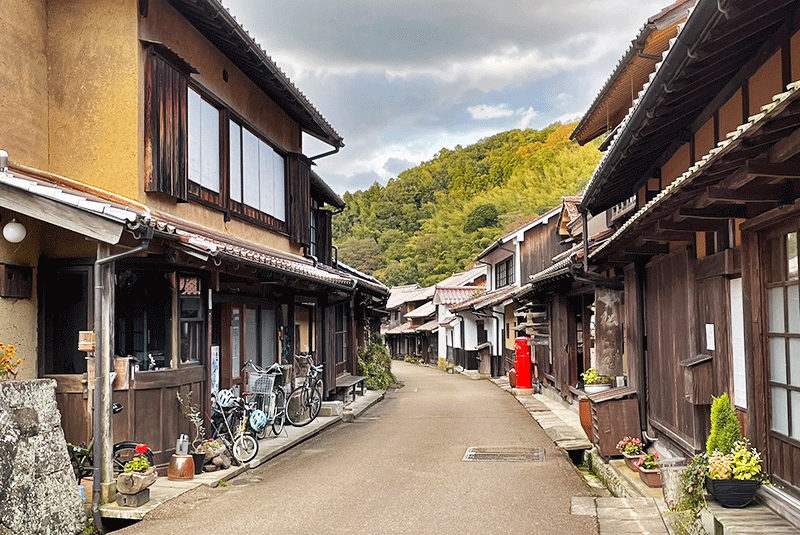
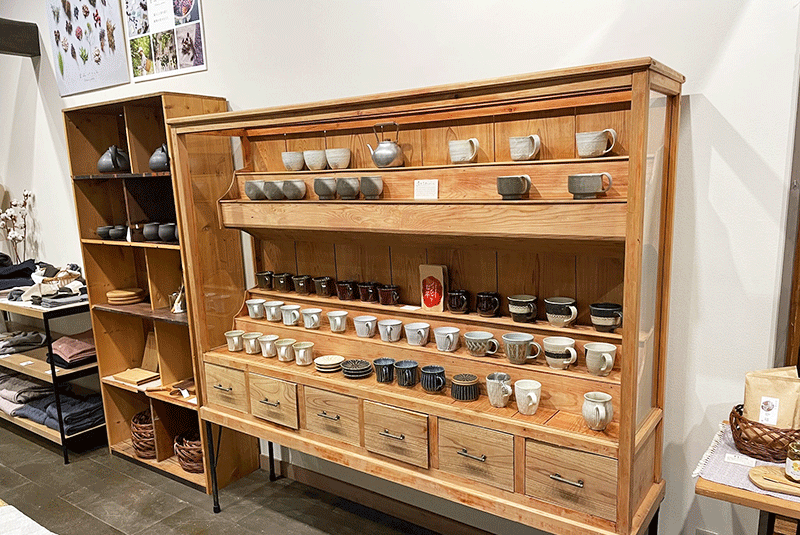
Another lesson 2024 bestowed, or re-bestowed, was how vast and varied the world is, what an enormous spectrum our planet encompasses in landscape, religious belief and practice, food, language, architecture, fashion, and everyday life-ritual.
In six months on the road, I lived this spectrum. I walked, heard, touched, tasted, and smelled the vastness of the world. I marveled at the masterful Maya murals at Bonampak, descended into the brothy depths of pho in Hoi An, inhaled the earthy aromas – oregano, thyme, olive oil, lemon – of Chania’s twisting alleyways, sifted sun-baked soil in the Masai Mara savannah, and soul-swayed to the breathy strains of an accordion on a dusky bridge over the Seine. Experiencing all these implanted a renewed, more deeply layered sense of the world’s richness, and filled me, enlarged me, with wonder.
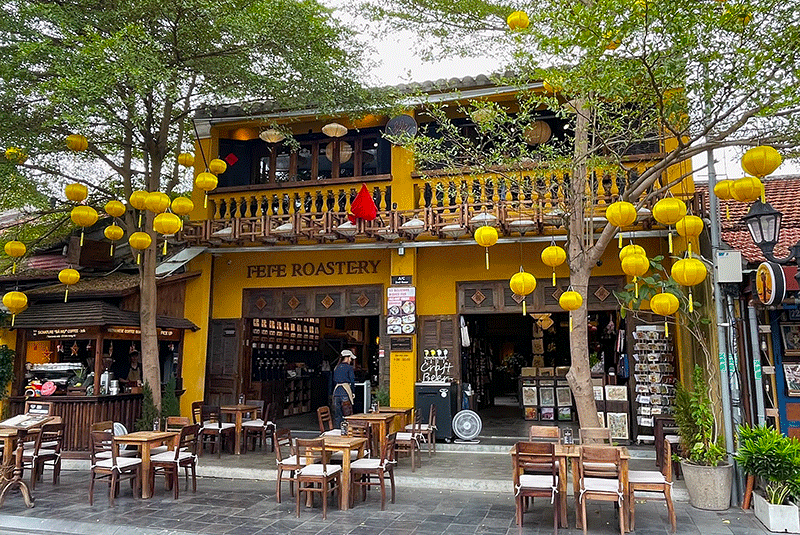
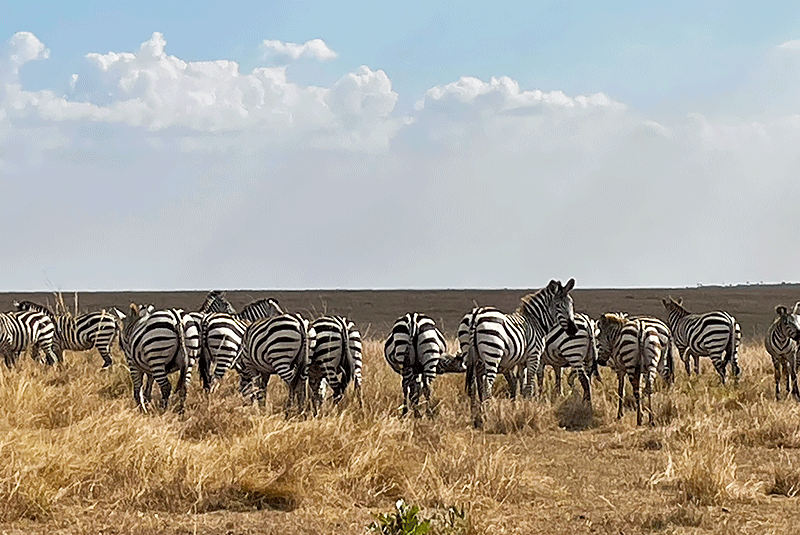
A third lesson was the grounding and expanding importance of connection.
This lesson wove throughout my year, in a variety of guises. I remember a champagne-sabred celebration with my writing students at the storied Moulin de la Galette restaurant in Montmartre; the time-bridging moment when I became Pakal in Mexico City’s National Museum of Anthropology; an unexpected feast in the Greek mountains, when the general manager of the local hotel took me to meet the mayor-farmer-chef of the nearby village’s sole restaurant, and we savored one of the finest meals of the year at a spartan roadside table under the Hellenic stars.
I recall a timeless day bouncing boundlessly through the Kenyan bush, rediscovering the wildness outside me – and inside me – among elephants, zebra, lions, and giraffes; and my reconnection with the amazing artist Ayano Tsukimi, who has repopulated her dwindling hometown on Shikoku with remarkably lifelike kakeshi, or scarecrows, and where she enthusiastically led me to see the kakeshi she had made of me.
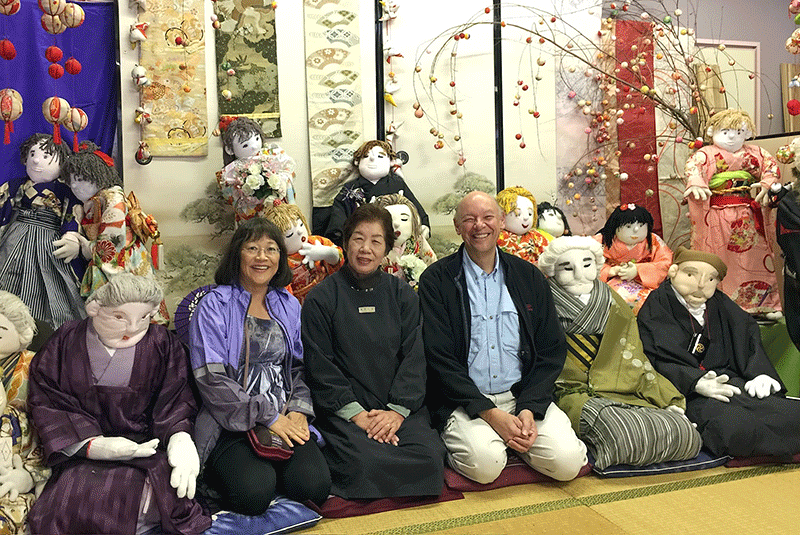
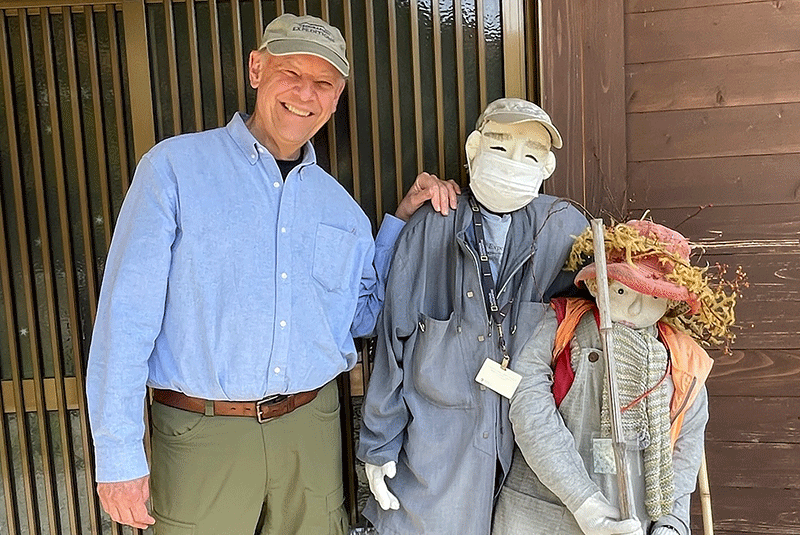
And this makes me realize that a corollary fourth lesson wove through the year as well – that while the world is almost incomprehensibly vast, it is also the coalescence of irreducible intimacies.
The size of the planet is the size of the tears that flowed as we hugged goodbye to the Takyo Abeke staffers and they waved and waved until we were out of sight. It’s the size of the shining eyes of the hotelier on Crete who told me about the map of the world her grandfather had given her when she was a girl, and how welcoming foreigners like me to her hotel now is the full-circle realization of her childhood dream.
It’s the size of the smile of the sushi chef in Kochi with whom we spent an unforgettable night: Last year, on our exuberant initial visit to his ten-stool counter restaurant, he had told us that we were the first foreigners he had ever served. We returned for a second festive feast last year, and then this year, on our third visit, we were surprised to discover that he had added two gracious young assistants. Near the end of this third amazing meal, I asked him if he could introduce his wonderful new assistants to us. Hearing my words, he broke into a smile as wide as the sea. “They are my daughters,” he said, looking at them and then us with a shy pride, “and I asked them to help me here tonight so that they could meet my new American friends.”
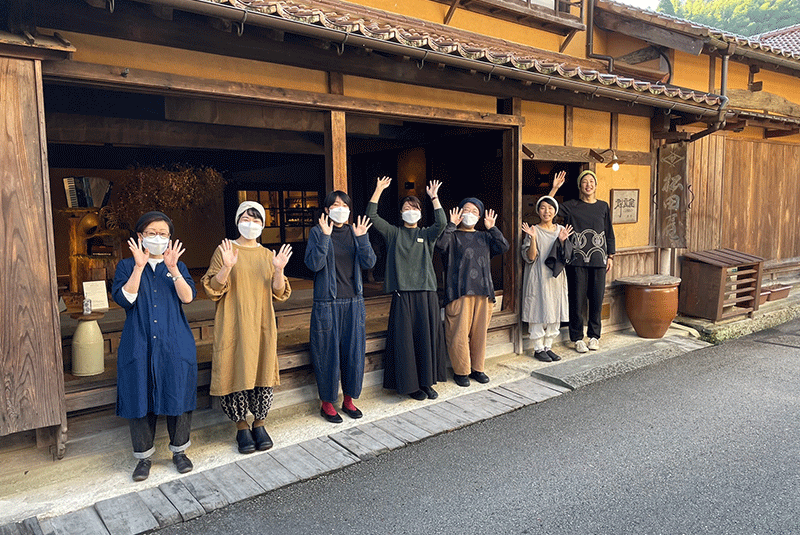
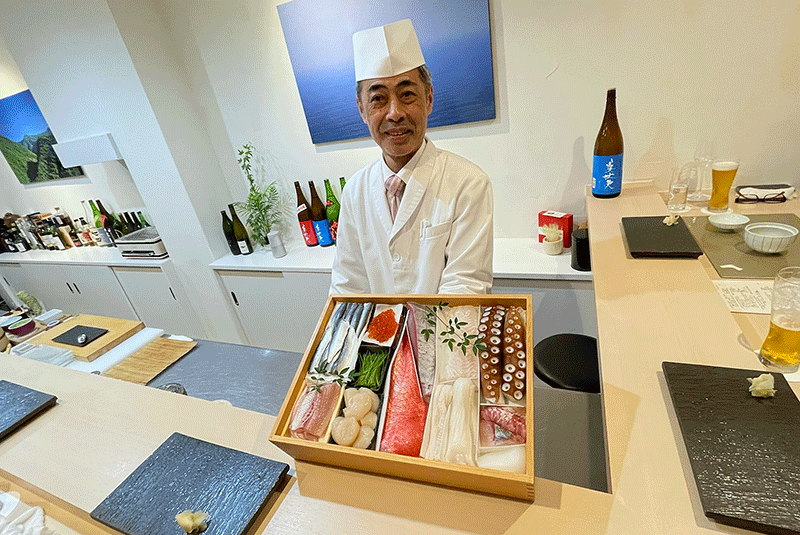
All of these, I think, point to one more truth: Travel is a force for good in the world; it makes the planet better. This idea has been the foundation and inspiration of my entire career as a traveler and writer, and I realize now that one prime reason why 2024 was so exhilarating was that it so resoundingly reaffirmed my belief in this idea. Whatever tribulations and tempests may roil the corridors of power around the globe, one truth soars above them: When we wander with open hearts and minds, and revel in all the wonders we find, we pave pathways of peace and understanding, and forge connections that are ever expanding. When we travel with hope and love in each embrace, we make the world a better place.
And on that note, I’d like to close with a simple holiday toast: Here’s to our deeply cherished readers and travelers – that is to say, to you – and to the world of wonders that we celebrate, share, and in so doing, joyously renew.
Cheers!
May your holidays be warm and filled with wonder!
Yours in abiding wanderlust,
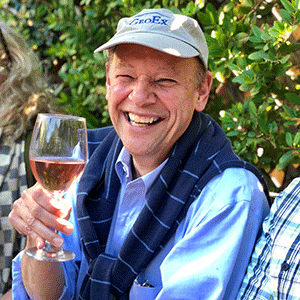
Don George
* * * * * * * * * * * * * * * * * * * * * * * * * * * * * * * * * * * * * * * * * * * * * * * * * * * * * * * * * * * * * * * * * * *
Eager to fill your year with wondrous travels? Connect with a GeoEx Expert or give us a call at 888-570-7108 to start planning your next adventure.
My Dear Don, I’m so grateful to have been able to share some of these adventures with you on our tour of Shikoku including the new experiences, delicious foods, extraordinary people, and cultural and historical discoveries. I love your continued curiosity about the world we live in and the ways you pursue your passion. I hope someday you’ll write the back story of your trips and tours and the planning and preparation that must have gone into them. I have traveled all my life beginning as a child escaping over the Burma Road as the Japanese invaded Burma road.. Problems… Read more »
Dear Diana! Thank you so much for your lovely and thoughtful note! I loved traveling with you on Shikoku and I hope we can travel together again someday! As for the back story, yes! There are certainly many challenges that go into my trips and tours. But as you say, often they turn out to be blessings in disguise. I figure everything is a gift. Sometimes it just takes a lot of imagination to understand what the gift is! 🙂 Sending much love and happiest holiday wishes to you and your family!
Don — Your learnings buoy my heart! May we all travel to “pave pathways of peace and understanding, and forge connections that are ever expanding.” A resounding “yes” to that! Here’s to 2025.
Beautiful! “When we travel with hope and love in each embrace, we make the world a better place.” Yes, yes, yes! Thanks for this uplifting holiday spirit!
What an amazing year of travel! Thank you for sharing your experiences and lessons learned or relearned. Travel is such a blessing and you describe it beautifully. All the best in 2025.

